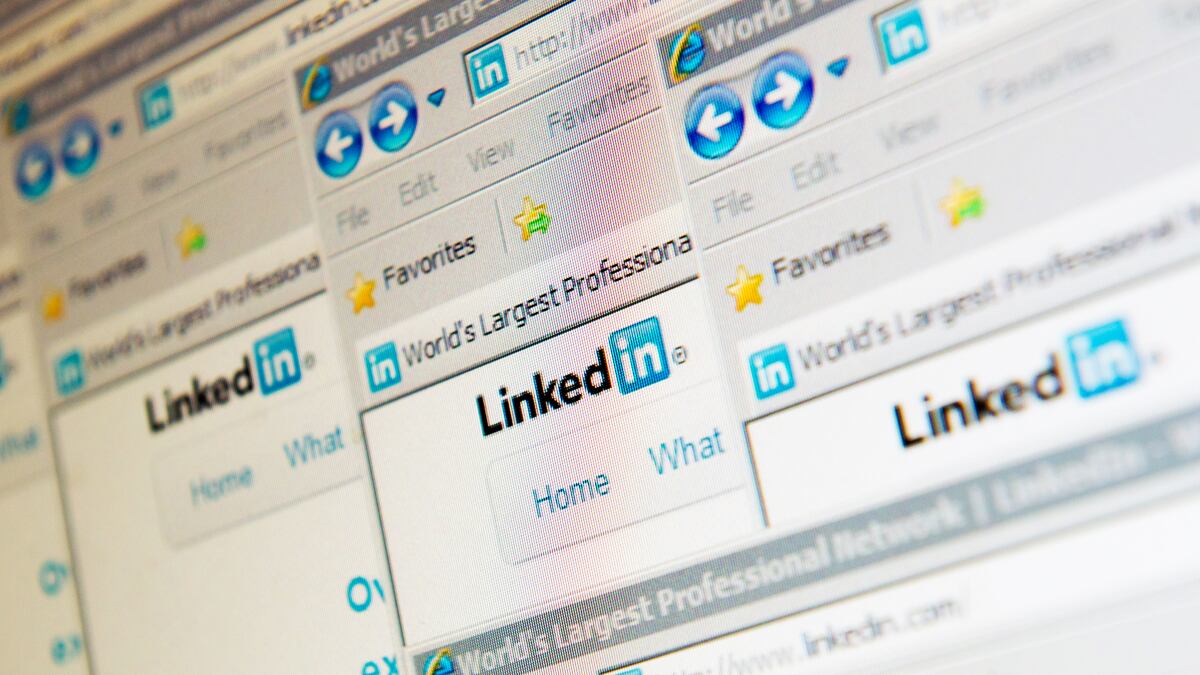If Silicon Valley is just one big high school, as investors there have been known to point out, then the most popular kid in class has long been Facebook. In recent years, as Mark Zuckerberg’s company strode toward an historic IPO, smaller social networks like LinkedIn came to look like scrawny nerds at the back of the cafeteria.
Turns out that social orders are fragile things. Facebook’s offering has fizzled, with shares falling 30 percent to a low of around $26. Lowly LinkedIn, meanwhile, is trading in the mid-$90 range—up nearly 50 percent since January. And while Facebook has told investors to expect reduced earnings growth in the year to come, LinkedIn, in May, announced its seventh consecutive quarter of year-on-year revenue growth topping 100 percent.
The change in fortune doesn’t quite make LinkedIn, a social network for professionals, the new varsity quarterback of Silicon Valley High. It has 161 million users to Zuckerberg’s 900 million, and no one expects it to catch up. But in the tepid wake of Facebook’s IPO, with other tech stocks diving, too, investors are reevaluating what is hot and what is valuable—giving LinkedIn a measure of belated respect from its peers.
“Absolutely,” says Chris Yeh, an investor and executive at PBworks, a company that makes collaboration tools. “It’s like, hey, LinkedIn has never been the cool kid, but they keep grinding it out and actually making things happen.”
The pillars of LinkedIn’s business—paid job listings, user fees, and display advertising—are not as sexy as, for example, the addictive games and viral discounts that fueled early growth at Zynga and Groupon. But its model has so far proven explainable, dependable, and profitable. LinkedIn made its public market debut on May 19, 2011, and of the major tech stocks that have floated since, none have performed as well. Shares of Yelp have lost nearly 29 percent of their value, Zynga is down about 37 percent, and Groupon has plummeted nearly 60 percent sjnce the IPO.
“LinkedIn is the only one that has done well, really well, by showing strong growth, and a lot of discipline,” says Jeff Clavier, a managing partner at SoftTech, a $55 million venture fund in Palo Alto, Calif.
The momentum has helped LinkedIn survive two embarrassing blunders, both revealed Wednesday. Researchers at Skycure Security reported that LinkedIn’s mobile app gathers sensitive information from users’ calendars, like names and notes, and transmits the data to its own servers insecurely. And separately, hackers stole 6.5 million passwords from the service and posted them online. The company’s stock price has been unaffected; overall, it’s down about 10 percent since mid-May, with analysts pegging Facebook’s stock as a drag on a range of startups.

LinkedIn’s cofounder and chairman, Reid Hoffman, epitomizes his company’s unglamorous, steady-as-she-goes approach. Yeh, paying him a visit at LinkedIn headquarters recently, came across Hoffman hoofing it through the parking lot, having just pulled his beat-up car into one of the same spaces available to all rank-and-file employees. LinkedIn did not make Hoffman available for comment.
“The key is, LinkedIn has never been fashionable—even in the realm of the social-networking startups it got started with,” says Yeh. “People were more excited about Friendster and Tribe than they were about LinkedIn. LinkedIn was always the least cool of those three. And look where they are now! Because who gets excited about a giant database of people’s résumés? Well, recruiters do, and companies do, and they’ve paid a lot of money over the years.”
Facebook’s IPO has put a chill into startup investing, with one prominent venture capitalist, Paul Graham, warning companies in his portfolio to expect lower valuations and reduce their need for outside money entirely. No one is sure when the IPO pipeline will thaw. For now, LinkedIn is providing an argument for substance over flash.
“The companies [that] are not really talked about, or aren’t the darlings of pure social media or pure consumer Internet, are actually doing better. Because they have businesses, right? They don’t have a choice, because in those markets, if you don’t have customers, revenue, projections, and you don’t make your numbers, you are punished like there’s no tomorrow,” says Clavier. “They’re not always the ones that people want to think about, or want to glamorize, but they’re very, very solid. They’re machines that basically produce revenue and scale and double [and] triple every year,” he added.






